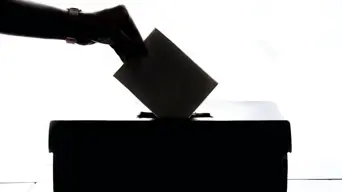Chad goes to polls in votes boycotted by opposition
Voting is taking place against a backdrop of recurring attacks by jihadist group Boko Haram in the Lake Chad region, the ending of a military accord with former colonial master France, and accusations of interference in the conflict ravaging neighbouring Sudan.

Picture: Unsplash.com
N'DJAMENA - Chad goes to the polls Sunday in legislative and local elections which the government of President Mahamat Idriss Deby Itno presents as a key step towards a democratic transition, but which opposition parties dismiss as a "masquerade".
Voting is taking place against a backdrop of recurring attacks by jihadist group Boko Haram in the Lake Chad region, the ending of a military accord with former colonial master France, and accusations of interference in the conflict ravaging neighbouring Sudan.
The 40-year-old Mahamat Deby took power in 2021 after the death of his father Idriss Deby Itno, who had ruled the poor Sahel country with an iron fist for three decades.
Deby junior won a five-year presidential mandate last May in a vote the opposition denounced as fraudulent.
The general elections will allow a "generational renewal" of the National Assembly and local legislatures, said a presidential advisor who asked to remain anonymous.
The last legislative elections date back to 2011, with several subsequent votes being postponed due to jihadist threats, financial difficulties, and the coronavirus epidemic.
A transitional parliament composed of 93 members was appointed by presidential decree in 2021 after the death of Idriss Deby Itno.
The opposition - which is boycotting the vote - accuses the government of being autocratic and repressive. "Participating in the legislative elections under the current conditions is participating in legislative apartheid," said the leader of the Transformers party, Succes Masra, who took 18.5% of the vote in the May presidential election against Deby's 61.3%.
But the Minister of Infrastructure Aziz Mahamat Saleh said the elections will give "a majority to the President of the Republic to translate his political programme into reality".
"This election is to legitimise the power in place which resembles a dynasty and faces enormous protests both inside and outside the country," said Professor Ahmat Mahamat Hassan, a constitutionalist teaching at the University of N'Djamena.
The election is taking place in a near media blackout, with journalists on strike to protest restrictions imposed by the state.
After 33 years of the Deby dynasty, Chad, a landlocked desert country but an oil producer, is ranked fourth from bottom in the United Nations Human Development Index (HDI).
The recent particularly heavy rainy season led to 500 deaths and displaced two million people.